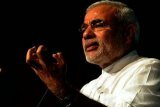Self knowledge (Part II)
How? In sleeping state, there is no play of the body, senses, mind and intellect and yet upon waking up after deep sleep, we declare “we had a sound sleep and feeling fresh”. Unless there was a perceiver who witnessed the sleeping state, how could such a declaration of having slept well be made? Body, etc. were at rest during sleep and therefore could not have witnessed or perceived. So, by inference, we can conclude that there was a witnessing /perceiving entity, other than body-mind-senses-intellect during sleeping state. This witnessing entity is called the Self, Atman etc. Upon waking up after a dream, we are able to declare that “we had a dream last night" and even able to recount the weird happenings in our dream. How could such recounting of dreams possible without a witness who perceived the happenings?
Surely, this witnessing could not have been body-mind-intellect as they were not in play. This witnessing entity is the Self. In dream, we see many characters and happenings. The characters and happenings, even though weird and jumbled, were true and real while the dream lasted but upon waking up they stand falsified. Only thing that remains is the impression that we dreamt such and such. The one who saw the different things in dream, the one who believed them as true and real and the one who realised the falsity of the dream, are all the same person. There was thus a continuing, ever-present Consciousness which enabled the continuity of the person through all states of existence. What remained is the Consciousness of having dreamt.
More like this
It is common experience that non-self constituting body-mind-intellect is subject to change, decay and perishing. How can the changeful non-self be the perceiver of changes in beings if the Self also is of changeful nature? We can see the changing motion pictures only on a changeless and firm screen. Likewise, the changeless Self enables us to perceive the changing nature of non-self.
At death, all sense organs are intact. With vital force (Prana) withdrawn due to heart not pumping, the living being has become mere matter of flesh and bones, decaying and rotting by the hour. Could Prana be the Self? No, because Prana also is insentient and a caused element. All of this only proves the point that Life principle i.e. Self i.e. Pure Consciousness is the substratum by which eyes see, ears hear, tongue tastes, nose smells, skin feels, mind thinks, heart pumps, blood circulates, bowels digest and all other organs function. We see, hear, taste, smell and feel through sense organs which are connected to mind, because of mind and intellect being illumined. But from what does the mind and intellect get illumination from? Self it is which illumines the mind and intellect. We mistake the reflection for the source and identify with it, causing I-ness, My-ness, doer-ship, agent ship and enjoyer-ship. This ignorance of real source of illumination is the root cause of our bondage. This avidya of real Self and mistakenly identifying with non-self body-mind-intellect can be removed only by knowledge of real Self.
During deep sleep state, mind, sense organs and organs of action are not functional. But, there is still the heart pumping, nose breathing, blood circulating, and bowels digesting. Life there is even without play of mind and sense organs. Clearly, mind and sense organs cannot be “self”. “Self” is the un-attached, un-tainted and independent witness, ever present in all states of existence. Self, the Pure Consciousness, illumines the mind and intellect. Because of reflected illumination by body-mind-intellect, we are deluded by its appearance as the self, though it is not the real Self within, which it has only superimposed. Because of our ignorance of real Self, we identify with body-mind-intellect mistaking it to be our real “Self”. Thus, thoughts, desires, actions and experiences which are the modifications of our mind and intellect give rise to “I”-ness, “My”-ness, doership, agentship and enjoyership. All this leads to bondage and consequent miseries of Samsara chakra. Vedic text says “Knowing Him alone, one goes beyond death. There is no other path to proceed”.
Is Self an object of knowledge and knowable by mind? Self is not an object of knowledge and hence not knowable by mind. Self is the knower of everything else. How can the Knower be ever known? Self is not adventitious either. Therefore, Self is eternal, pure and independent. If Self cannot be known, of what use are our scriptures prescribing Self Knowledge as the goal of life? Answer: By Self knowledge is meant the exertion for removal of ignorance of the ever existing and self revealing Self and not in the sense of gaining of any new knowledge or any action of knowing. Ignorance removed Self reveals without any other exertion or adventitious cause.
During deep sleep state there is thoughtlessness and actionlessness apparently like in Samadhi state, due to mind and sense organs at rest, but he remains ignorant of real Self and therefore resumes his I-ness and dual perception on waking up from sleep. However in Samadhi state, having got rid of ignorance of real Self by negating all dual perceptions, he is in union with the Self and being established in the Self, he is by its nature thoughtless and actionless unlike the adventitious thoughtlessness and actionlessness of deep sleep state.
What is Self at the individual level is the same as Brahman at the cosmic level. Brahman, the one without a second, is homogenous whole without parts or attributes. Brahman embodied is Self and Self liberated is Brahman. Vedic texts declare thus “Having created that, He entered into that”, “Let me manifest name and form by myself entering in the individual soul”, “Thou art that”, “I am Brahman”, “This Self, the perceiver of everything is Brahman”, “This Self is Brahman”, “Pure consciousness is Brahman”.
For intellectual conviction about Self and its nature some doubts are answered here. Self is tainted, how? Sky is not blue and yet it is perceived blue. Sun is not affected or contaminated by its rays falling on dirty water. Can I be injured by fighting my shadow? Self, the pure consciousness, the subtlest of the subtlest, cannot be tainted; “Self liberated is Brahman” How? Like waves and water, like pot space and space; Self cannot be cognised, why? Only an object can be thought of or perceived or cognised. This implies an object separate from the subject. When there is no separateness, no otherness and where there is only oneness without a second, the knower and the knowable become one. So who to think of whom or who to cognise whom; Self is Knowledge Absolute. How? As the one homogenous pure consciousness without a second, it is the knower of all that is known in the world. How can the knower be known? Self is Knowledge Absolute; Self is beyond time, space & thought. How? Time, space and thought are creations of Brahman. Self is indescribable because Self is not knowable; How Self is to be known? By process of negation only “Not this, Not this”; Self is attributeless because Self is the knower of all Gunas; Self cannot have a Guna of its own, like the tasteless tongue only knows all the tastes.
Here are some quotes from Gita to know more about the nature of Self:
“This is not born or dies at any time. This is eternal, changeless, ancient and is not killed when body is killed” - CH II 20
“Weapons do not cut this, fire burns not this, waters wet not this, wind dry not this “- CH II 23
“This is unmanifested, unthinkable and unchangeable. Therefore, having known this, it is said that you ought not to grieve” - CH II 25
“This in-dweller in the body of all is always indestructible. Therefore, you should not grieve for all creatures” - CH II 29
N Balasubramanian is an old time honours graduate in economics and has vast experience and expertise in human relations and resources development. A devotee of Sage of Kanchi - Maha Swamigal, N Balasubramanian is living a quiet and meditative life based upon the Guru's teachings. An avid reader of philosophy in his younger years, he wholly devotes his energies presently, in discovering insights and practical wisdom from ancient Indian scriptures. Based upon his understanding of Acharya's discourses and writings on spirituality, N Balasubramanian shares these thoughts on IndiaNewsBulletin.com to just provoke your thoughts and kindle your interest in spirituality and philosophy.
Most read
- 2017: Full list of Indian States, capitals and their Chief Ministers; Nitish Kumar quits and takes oath again as Bihar CM!
- List of all the major rivers of India: Names, Origin and Length
- Ram Nath Kovind is 14th Indian President after Pranab Mukherjee. Here's a list of all Indian Presidents since 1950
- Indian cabinet September 2017: Full list of Ministers and their portfolios in Narendra Modi government
- Dosa recipe: How to make crispy Paper Dosa and Masala Dosa
- SIIMA 2016 Pics: South Indian Cinema stars dazzle in Singapore for the awards red carpet
- Bollywood Dream Team 2016: Katrina, Alia, Sidharth, Varun, Parineeti, Aditya Roy Kapur US tour in August
- South Indian actress Trisha Krishnan’s father passes away
- Recipe: Misal Pav – how to make missal masala, usal and tarri
- Navrangi Navratri 2016: UK Indians revel in the traditional magic of garba and dandiya in London
India News Bulletin by email
More Lead Stories
- Pics: Salman Khan in London for his Global Diversity Award
- Osterley Gymkhana London hosts 70th Indian Independence Day Celebrations
- Indian tourists involved in fatal collision on M1 motorway involving minibus and 2 lorries
- 2017: Full list of Indian States, capitals and their Chief Ministers; Nitish Kumar quits and takes oath again as Bihar CM!
- Indian train meals not protected from rats, cockroaches, dust, insects, warn auditors












